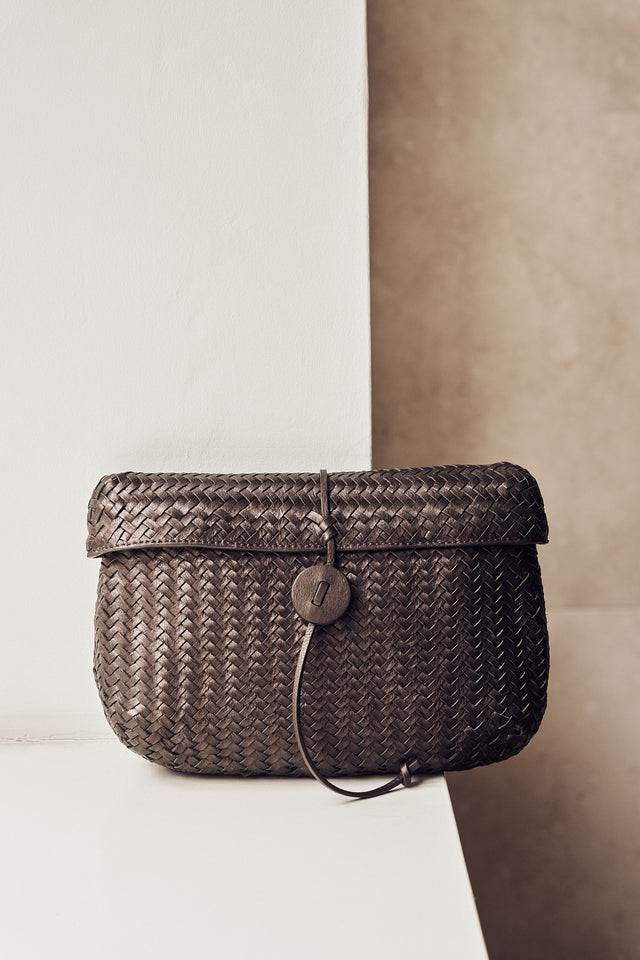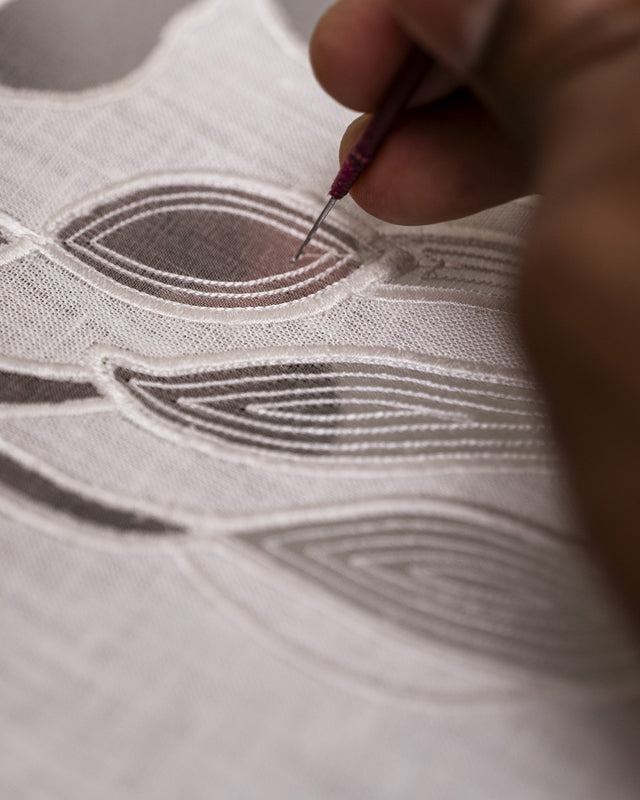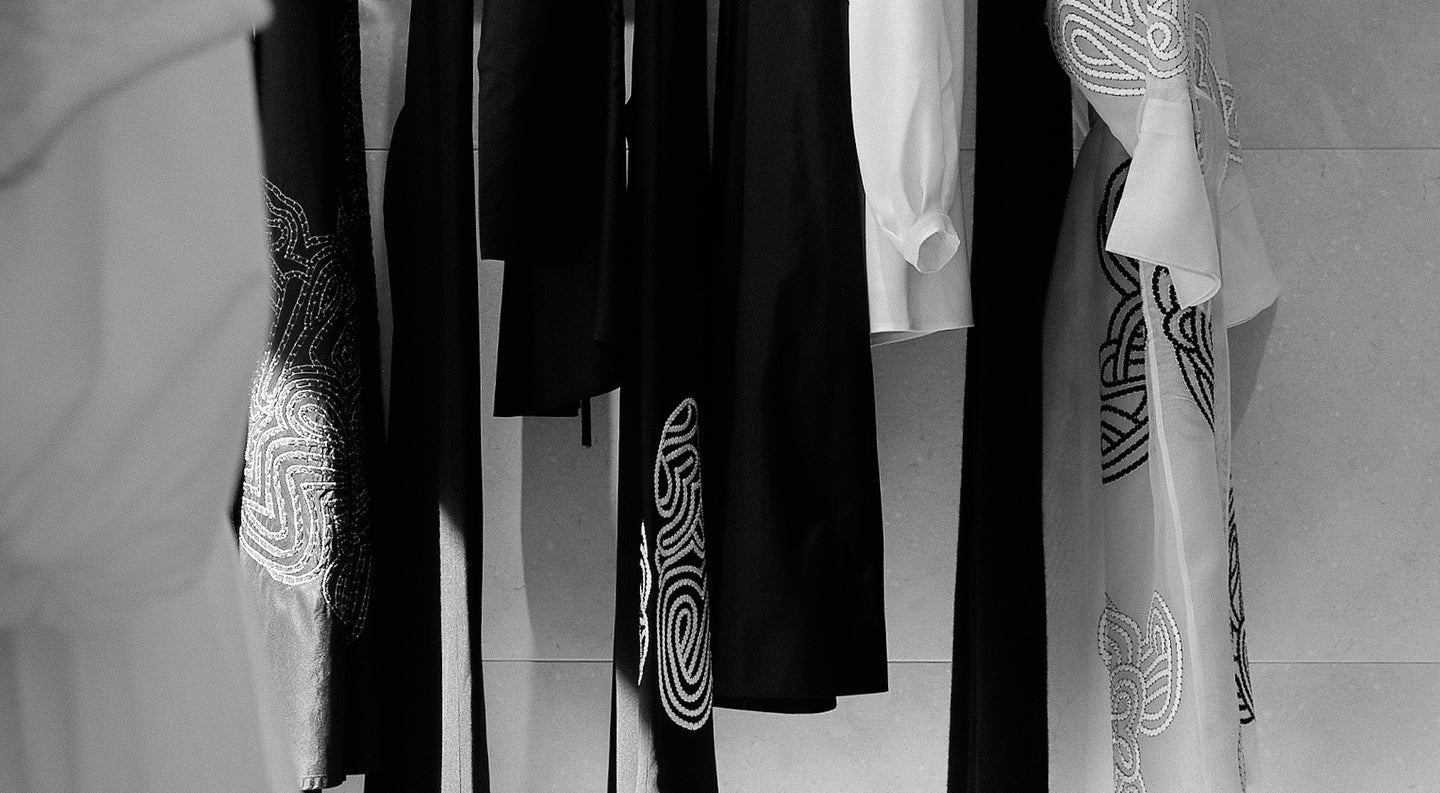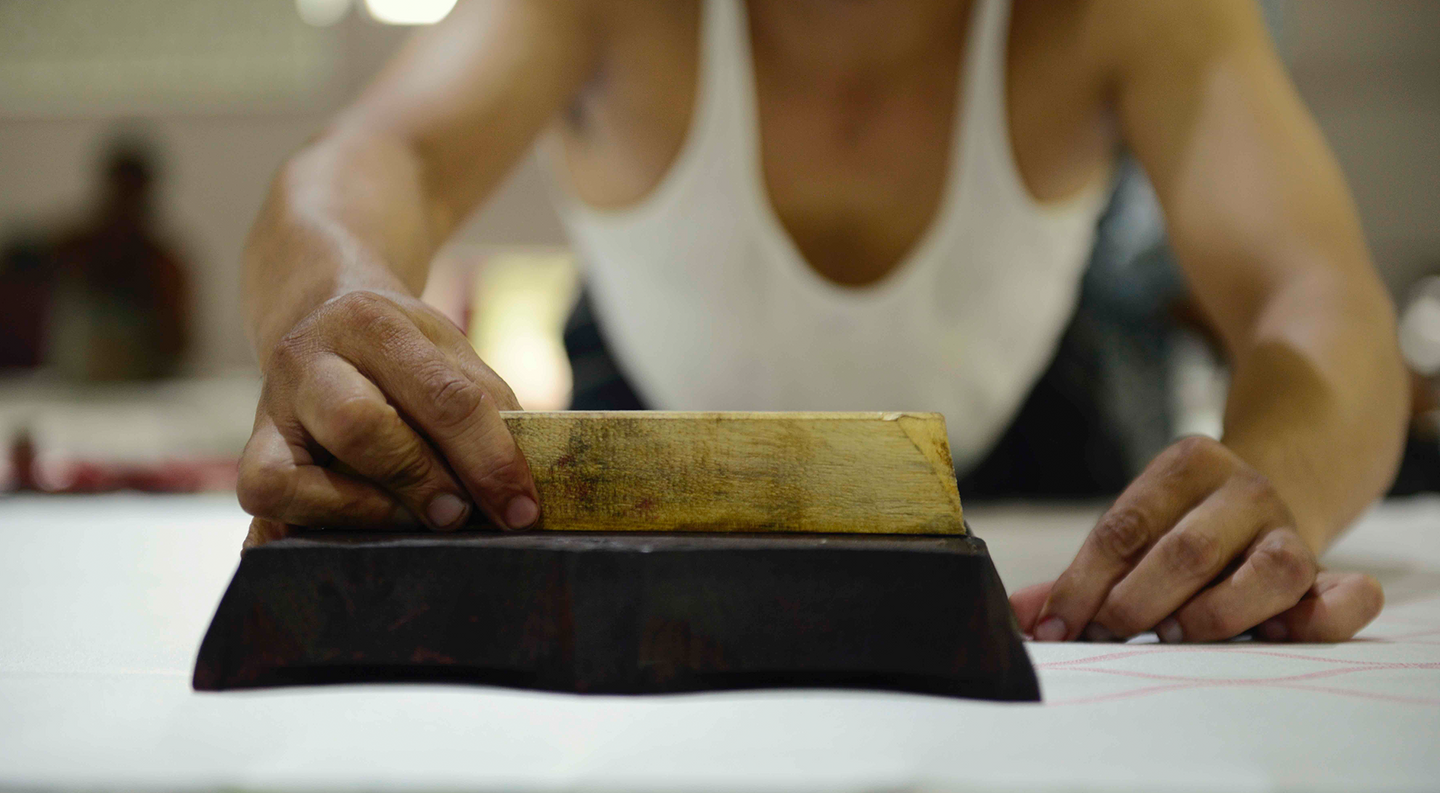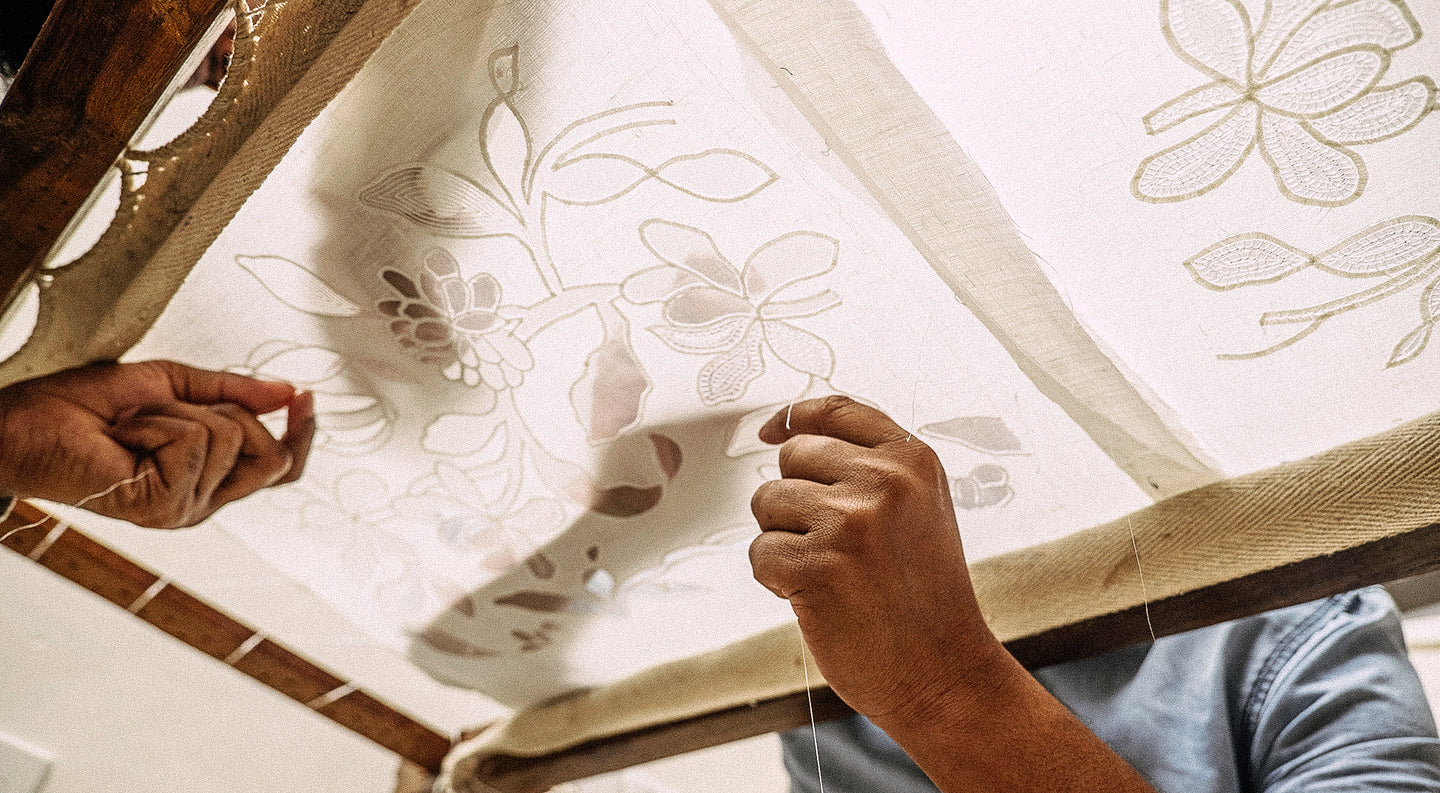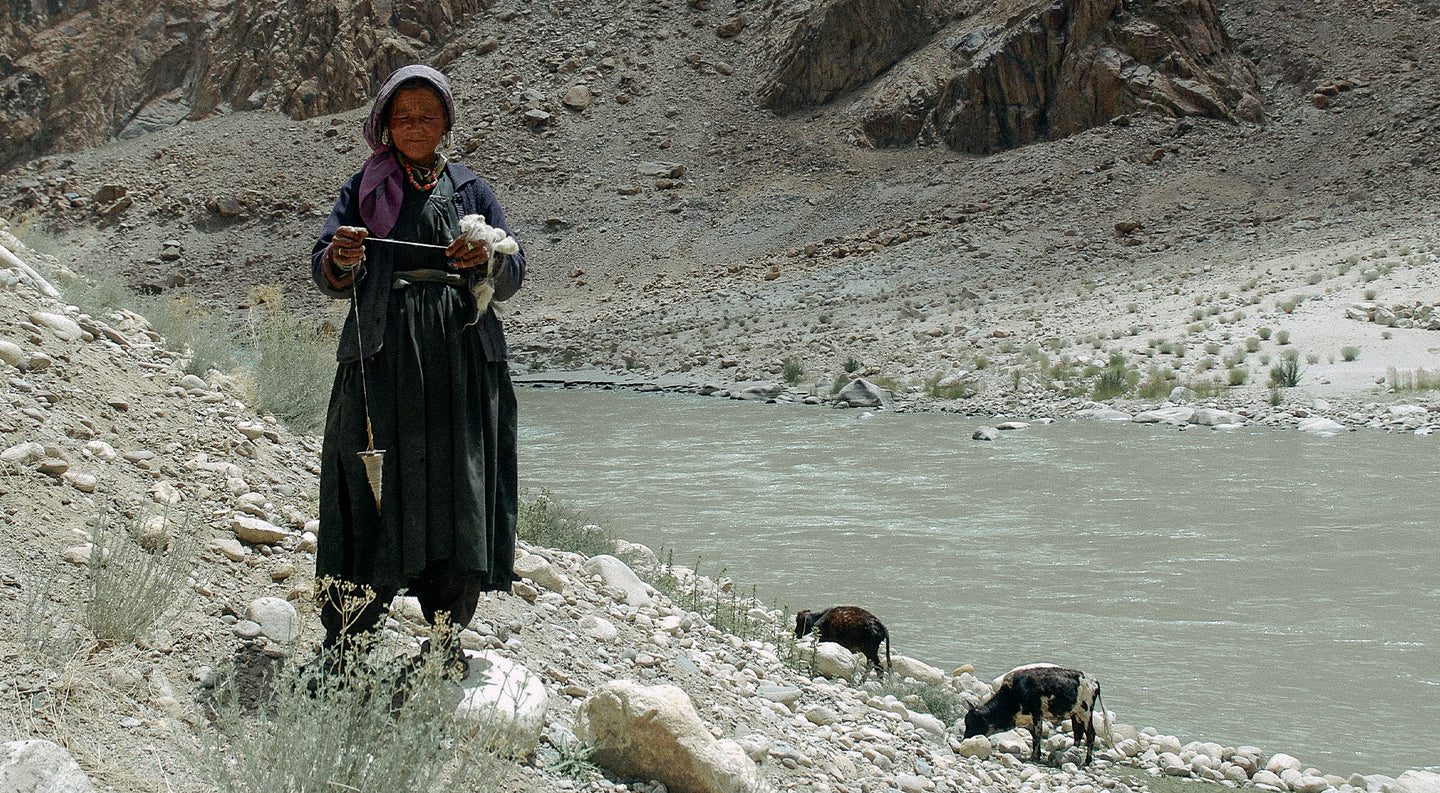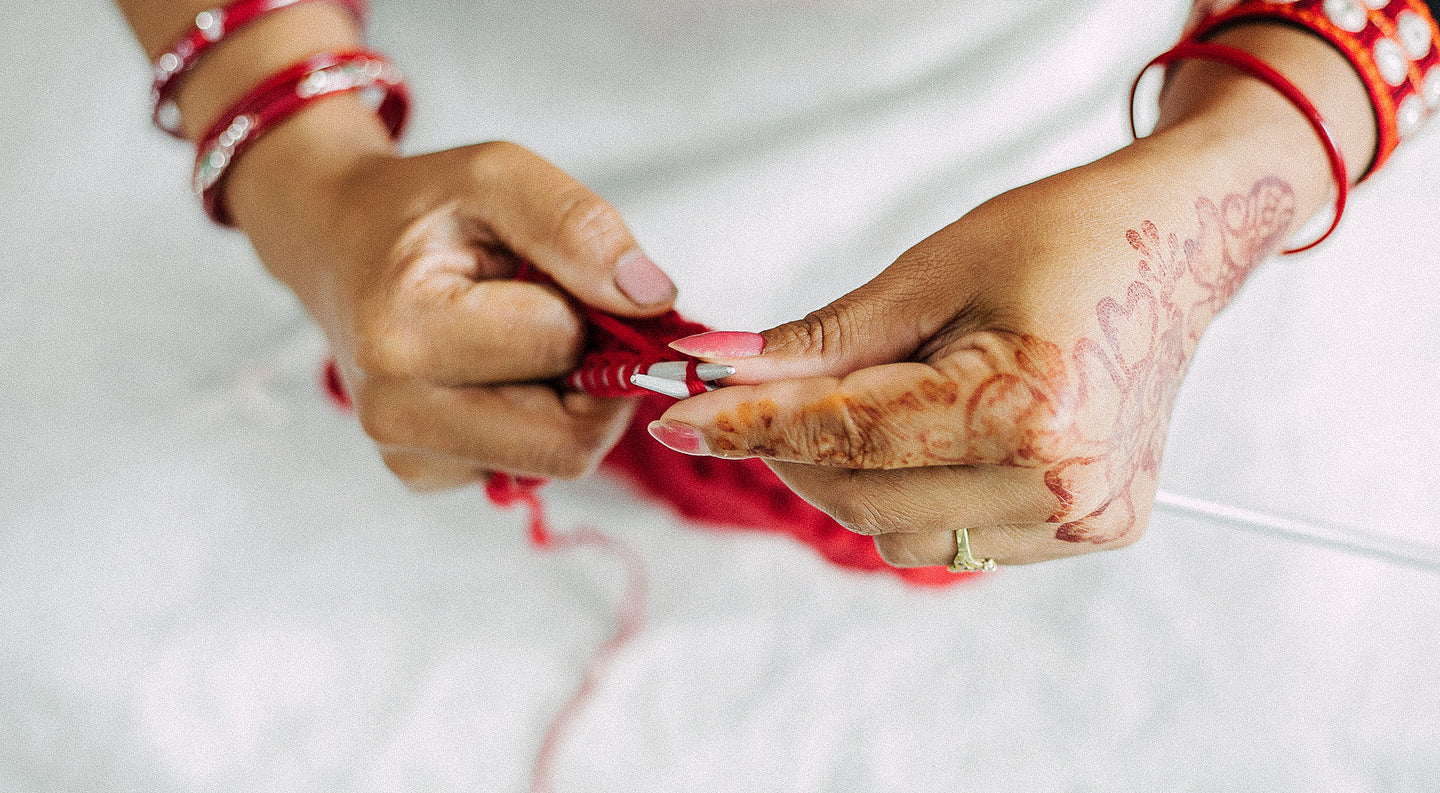The weaving of Khadi is the oldest method of weaving fabric, and has been practiced on the Indian subcontinent for over 5,000 years.
The word Khadi originates from the Hindi word ‘khad’ and denotes a hand-weaving technique and not a material. Hand-spun using a wooden spinning wheel, and then hand-woven, Khadi fabric is typically made from cotton but it can also be crafted from silk, wool and other fibres. The manufacturing process is done completely by hand, using human dexterity in lieu of mechanical, energy-intensive weaving processes with subsequent carbon emissions. As Khadi is manufactured using solely human energy, it has close to a zero carbon footprint. Made from natural fibres, derived from natural and renewable resources, Khadi fabric is also biodegradable and will return to nature at the end of its useful life.
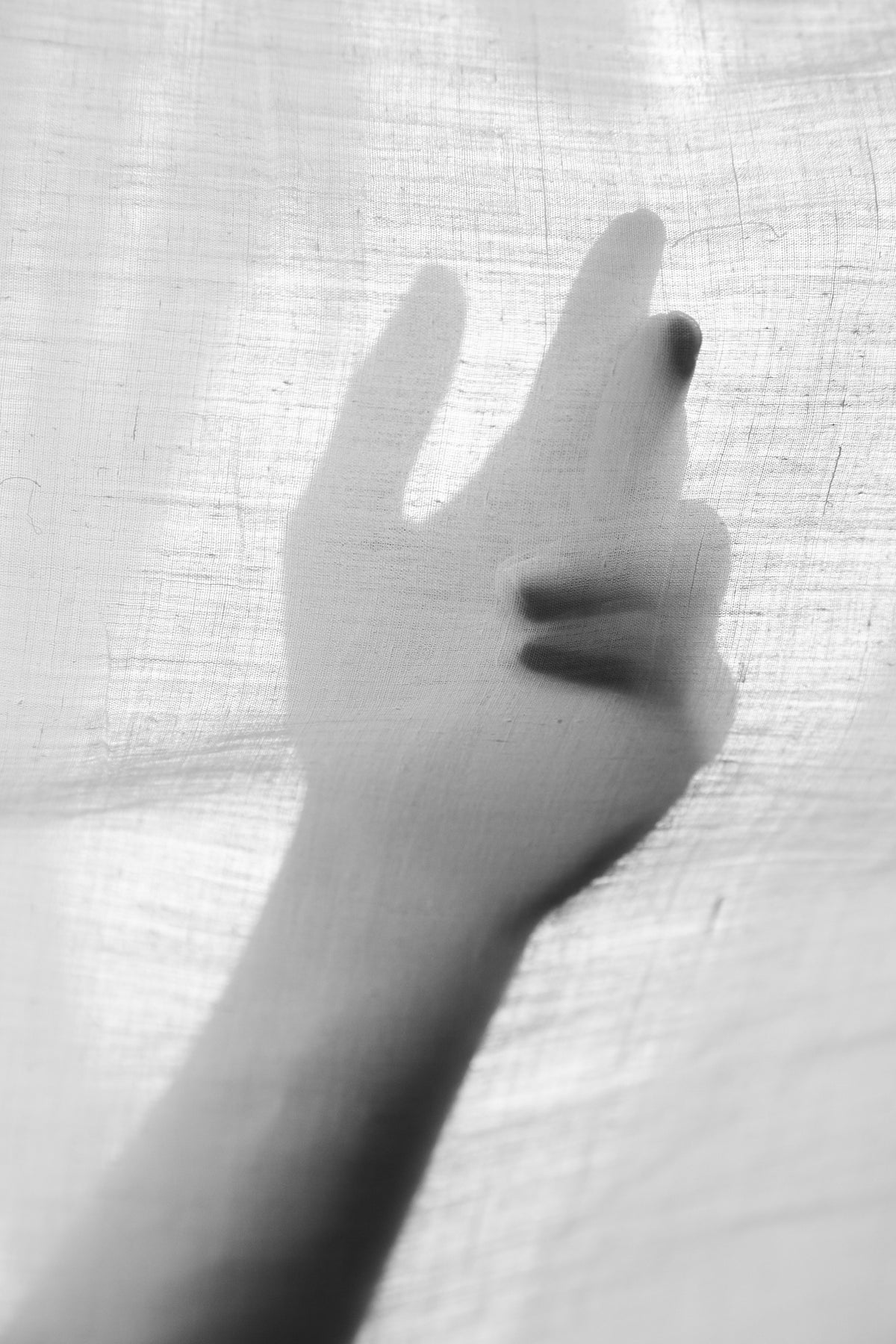
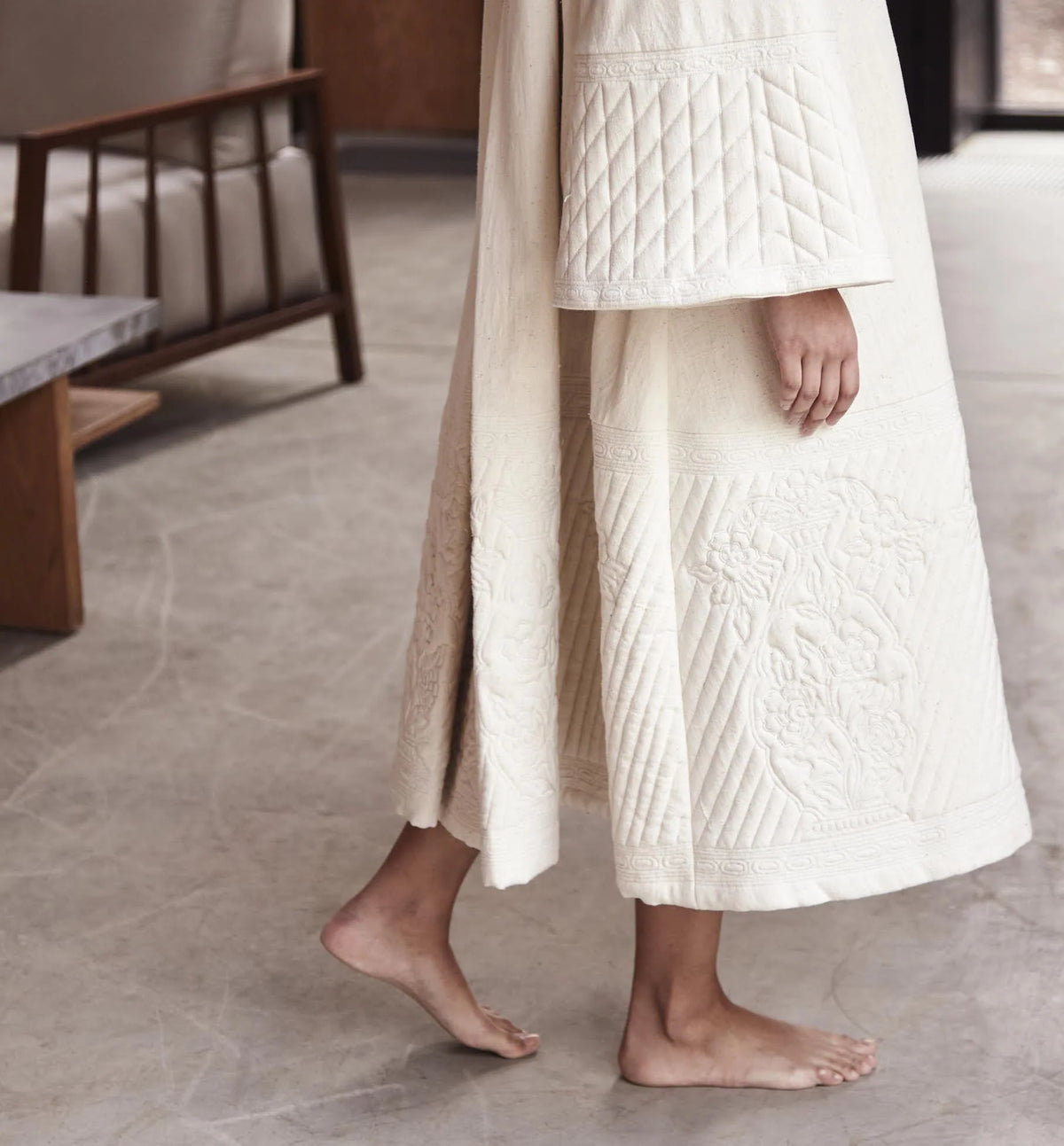
“Khadi is a symbol, not of commercial war, but of commercial peace”
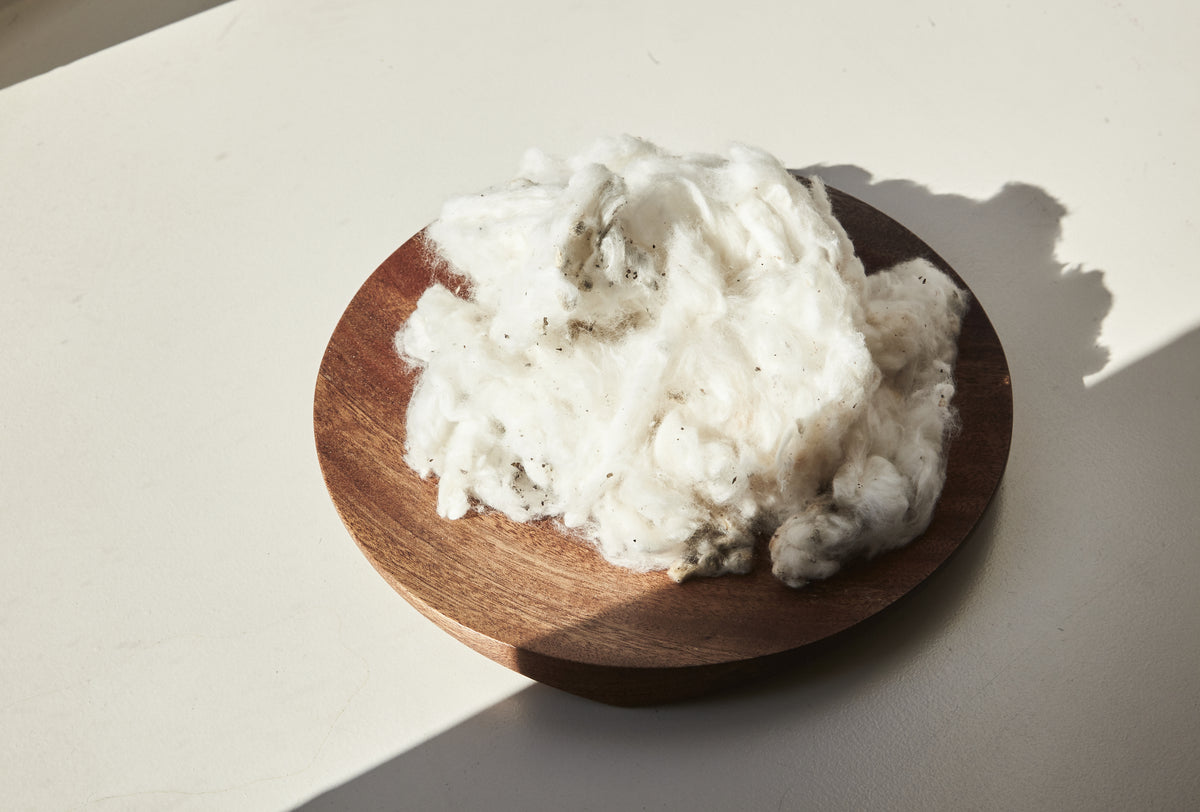
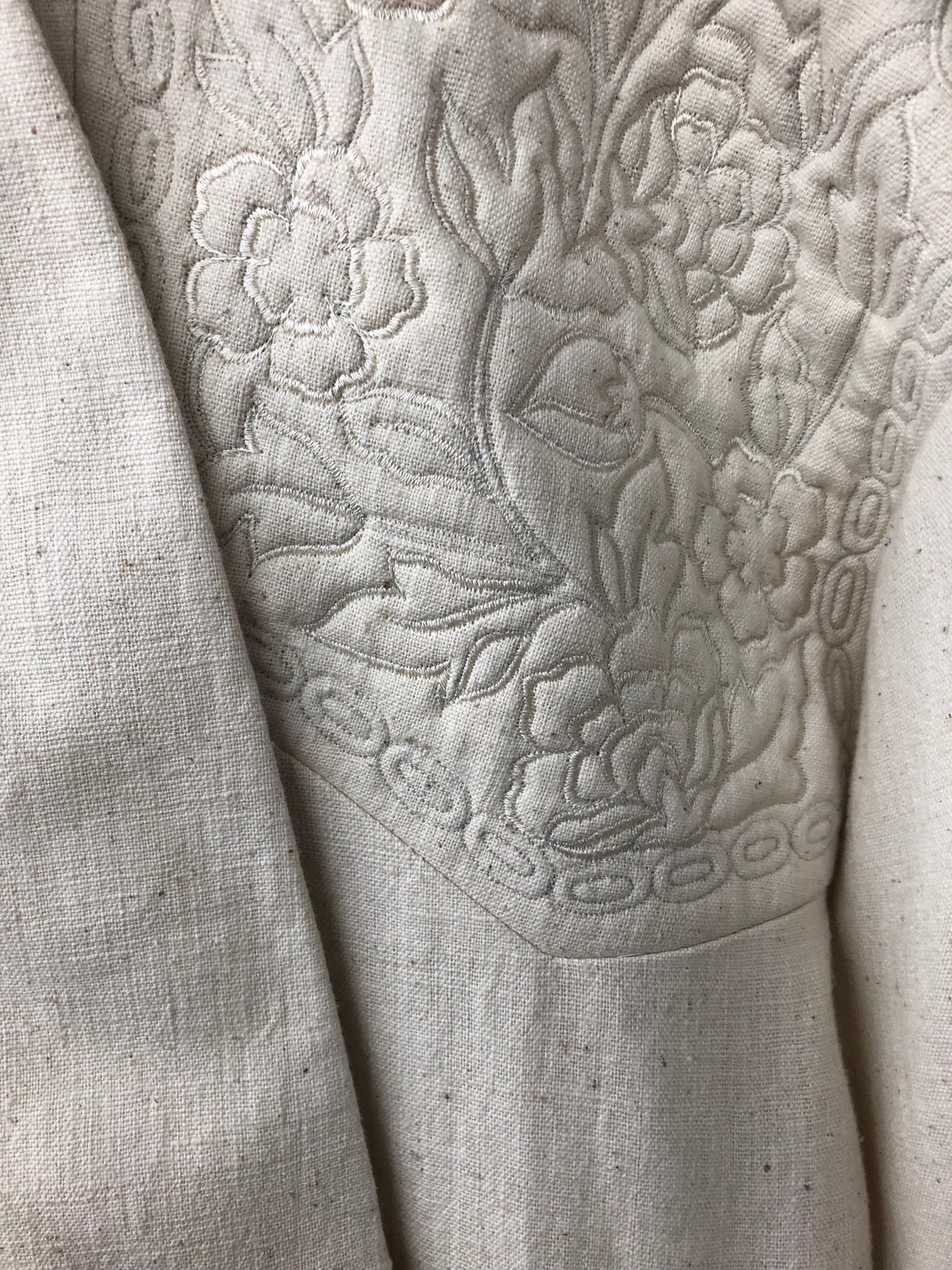
The Fabric of Freedom
Although the weaving of handspun and handwoven fabric has existed for centuries, Khadi was brought to the attention of the world as a symbol of resistance advocated by Mahatma Gandhi during India’s freedom struggle against the British empire. During the colonial period, the British took cotton grown in India to England, processed it in British mills, and then sold it back as cloth to the Indian people at exorbitant prices. In protest, Gandhi urged all Indians to spin and weave their own yarn in order to break the British monopolies and be self-reliant. The fabric has come to symbolise freedom, resistance, self-reliance and equality, and the process works to preserve traditional handicraft, a core concept of Varana’s business.
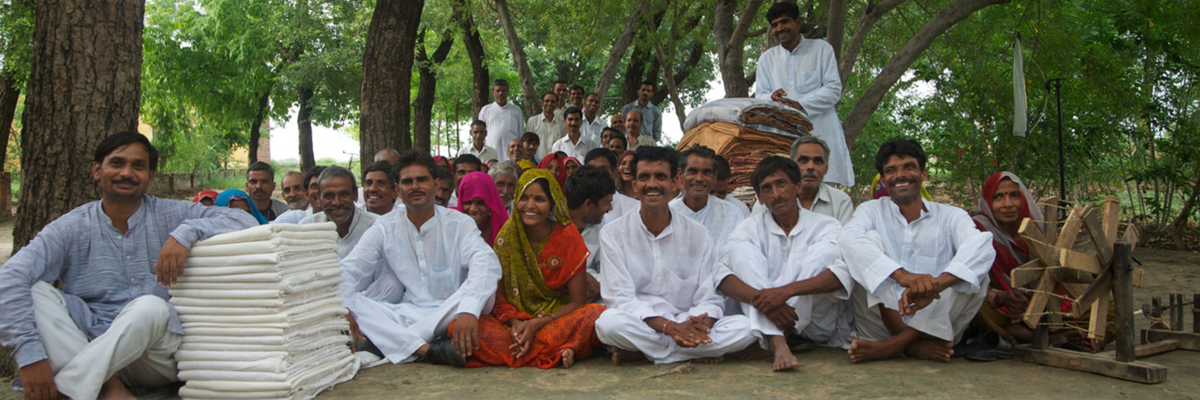
Weavers of Khadi at the Sarvodaya Ashram, Etah, Uttar Pradesh

